- Home
- Aharon Appelfeld
The Iron Tracks
The Iron Tracks Read online
PRAISE FOR
THE IRON TRACKS
“A spare epic of concision and restraint, thronged with memorable characters. This tale of reparation and retaliation is art at its highest.”
—Richard Lourie, The Washington Post
“Appelfeld is a worthy successor to Kafka. Irony and a weirdly plausible surrealism serve his post-Holocaust explorations with sinister precision.”
—Jonathan Rosen, New York Times Book Review
“Appelfeld is an astonishingly subtle and sensitive writer whose work refines itself and grows purer over the years. Almost every sentence in The Iron Tracks sparkles with gemlike refraction.”
—The Chicago Tribune
“Piercing… steals up on us and will haunt us in our sleep.”
—Alfred Kazin
“Haunting… striking… dramatic… engrossing. This unsparing portrayal of a modern Wandering Jew is one of [Appelfeld’s] most challenging and troubling fictions.”
—Kirkus Reviews, starred review
BOOKS BY
AHARON APPELFELD
Badenheim 1939
The Age of Wonders
Tzili: The Story of a Life
The Retreat
To the Land of the Cattails
The Immortal Bartfuss
For Every Sin
The Healer
Katerina
Unto the Soul
Beyond Despair:
Three Lectures and a Conversation with Philip Roth
The Iron Tracks
The Conversion
Translation copyright © 1998 by Aharon Appelfeld
All rights reserved under International and Pan-American Copyright Conventions. Published in the United States by Schocken Books Inc., New York.
SCHOCKEN and colophon are trademarks of Schocken Books Inc.
Originally published in Israel as Mesilat Barzel by Maxwell-Macmillan-Keter Publishing House, Jerusalem Ltd., in 1991. Copyright © 1991 Maxwell-Macmillan-Keter Publishing House, Jerusalem Ltd.
Library of Congress Cataloging-in-Publication Data
Appelfeld, Aron.
[Mesilat barzel. English]
The iron tracks / Aharon Appelfeld; translated from the Hebrew by
Jeffrey M. Green.
p. cm.
eISBN: 978-0-307-48639-4
I. Green, Yaacov Jeffrey. II. Title.
892.4′36—dc21 PJ5054.A755M4713 1998 97-27982
Random House Web Address: http://www.randomhouse.com
v3.0_r1
Cover
Praise
Other Titles
Title Page
Copyright
Chapter 1
Chapter 2
Chapter 3
Chapter 4
Chapter 5
Chapter 6
Chapter 7
Chapter 8
Chapter 9
Chapter 10
Chapter 11
Chapter 12
Chapter 13
Chapter 14
Chapter 15
Chapter 16
Chapter 17
Chapter 18
Chapter 19
Chapter 20
Chapter 21
Chapter 22
Chapter 23
Chapter 24
Chapter 25
Chapter 26
Chapter 27
Chapter 28
Chapter 29
Chapter 30
Chapter 31
Chapter 32
About the Author
CHAPTER
1
Since the end of the war, I have been on this line, as they say: a long, twisted line stretching from Naples to the cold north, a line of locals, trams, taxis, and carriages. The seasons shift before my eyes like an illusion. I have learned this route with my body. Now I know every hostel and every inn, every restaurant and buffet, the vehicles that bring you to the remotest corners. I can sit in a buffet and imagine, for instance, what’s happening in distant Hansen, how the snow is falling there and softly covering the narrow lanes. Or Café Anton, where they serve warm rolls in the earliest hours of the morning, with coffee and cherry jam. In these godforsaken places such pleasures beckon me, exciting my memory for days on end. I have long since learned that in the end, thoughts, however noble, vanish like the wind, but fresh rolls, homemade jam, not to mention a cigarette, have a taste that stays with you for days. Often just the thought of Café Anton is enough to drive a pack of evil thoughts from my mind. I love those tiny, remote places. Large cities, I avoid like the plague. They fill me with dread. More grievously, with melancholy.
Others may possess spacious houses, shops, even warehouses. I have an entire continent. I’m at home in every abandoned corner. I know places you won’t find on any map, places with a solitary house, a single tree. When I first began to travel, I would get lost, confused, stuck. Today with one telephone call I’m out of the maze. I’m familiar with every kind of rural transportation, which drivers work on Sundays and holidays, who is prepared to risk a snowstorm, and who is hopelessly lazy. In short, who is a friend and who is not.
In marvelous little Herben, about which I shall have more to say later, my regular driver Marcello awaits me on April fifth. When I see him from the train window, happiness rushes through me, as if I were returning to my lost hometown. He has been waiting for me on that date for more than twenty years. While I am still standing in the carriage door, he rushes toward me, takes the valise from my hand, and ushers me into his cab. From little Herben we drive to a place called Upper Herben, a two-and-a-half-hour trip. During the drive he tells me everything that has happened in Herben, about himself and his friends, and of course his ex-wife, who has been squeezing alimony out of him for years. Thus it is every year. And in this repetition lies a strange hopefulness. As if our end were not extinction but a sort of constant renewal.
The trains make me free. Without them, what would I be in this world? An insect, a mindless clerk, or, at best, a shopkeeper, a kind of human snail, getting up early, working eight or nine hours, and in the evening, with the remains of his strength, locking up and going home to what? A disgruntled wife, an overgrown, ungrateful son, a stack of bills. I detest those somber places called houses. I board the train, and instantly I’m borne aloft on the wings of the wind.
A train is by nature heavy, even clumsy. But in open spaces, when it gains speed, it transforms itself, defies gravity, and soars. At night that soaring has a special quality. You sleep differently. During the first years that ride would make me dizzy, give me palpitations. Today I board the train like a man on his way home. If the dining car is comfortable, I sit there, and if not, I find a window seat. Empty cars amuse me. The thought that I’m alone in a car oddly pleases me. I maintain one rule: no sandwiches and no thermos. A person sitting on a train, nibbling a sandwich and drinking from the lid of a thermos, is lower in my eyes than a beggar. I’m willing to spend five American dollars for a cup of coffee, on condition that it is served to me. Simply being served a cup of coffee staves off my depression for a whole hour.
Another matter, the music. In recent years they’ve installed loudspeakers in the dining cars. I love music, but it must be soft. I loathe drums. They drive me mad. In my youth I fled from classical music as from funerals, but gradually I learned to appreciate it. It’s a subtle potion. Once you submit to it, you can’t live without it. After an hour of string quartets I’m a new man. The music soothes my nerves, and I respond, if I may say so, quietly and without self-pity.
When I enter the dining car, I listen to what the loudspeakers are playing and check to see who the waiter is and who the other diners are. A coarse-looking waiter is likely to drive me from the car, but if his face is kind, I try to win h
im over. I slip him a bill or two, and he turns off the drums and puts on a classical station. The old-timers recognize me. They know they’ll be rewarded.
A heated railroad car with good music is better than any hotel room. Hotels spread melancholy and despair. Not so trains. They can intoxicate every one of your senses to the fullest. To be honest, my competitors, my enemies, also infest the trains and force me to maintain great vigilance. My competitors are short, thin men whose quickness is not that of youth, but of those who fear for their lives. They are terrified by the open platform. They see me, and in a flash they take cover under awnings and disappear onto the first train. Like me, they’re experienced creatures of the tracks.
Often I’m tempted to approach them and tell them that I, at any rate, have no interest in this rivalry. For my part, I am prepared for any compromise, for any division of territory. On one condition: no further competition and no animosity. I said I am prepared to compromise, but in fact I have done little to raise the subject with them. Years ago I bumped into one of them in the dark and said, in our language, “Why do you run away from me? What harm have I ever done you?” He was so startled that he went pale and said nothing. Since then I haven’t exchanged a word with any of them. I do know one thing: they are not many. Six or seven in all, and they apparently follow the same circular route that I do. Once I found one of them in an empty car. He was curled up in his coat and clutched his narrow valise with both hands as if holding a sleeping infant. I wanted to wake him and invite him for coffee, but I thought better of it. You must not rouse a man from his slumber.
True, from time to time, I am oppressed by sudden fear, inexplicable revulsion. These moods, or whatever you want to call them, used to paralyze me. More than once I have locked myself away in a remote hotel because life suddenly seemed dark and without purpose. The winter in these regions is gray and long, and in the morning it is too depressing to get up. Once I spent two weeks in bed because it seemed to me that a new war had begun. A confession: I like to sleep during the day better than at night. The thought that the world is frantically going about its business while I doze in a big bed, wrapped in three soft blankets, is charged with a hint of revenge.
Over the years I’ve learned to master some of my fears. Today I get up and without hesitation step over to the sink and begin to shave. Shaving, I have learned, is an activity that arouses optimism. Time at the sink restores the desire for travel and the memory of gliding on wheels. The minute I step onto a train, my life opens up, I walk upon solid ground.
Were it not for my work, I would never leave the confines of the stations. Everything is available on the train: excellent music, glorious views, and, on occasion, a woman. There is nothing like love on a train. Sometimes it lasts only a station or two. The main thing is that you’ll never see the woman again. Of course, sometimes you get entangled, and you suddenly have, aside from your valise, a sluggish creature who keeps demanding coffee and cigarettes. Thus I repeat to myself: love for two stations and no more. Fleeting loves are beneficial and never painful. Love for a station or two is love without pretense and soon forgotten. Any contact beyond that pollutes the emotions and threatens to leave behind recriminations. Women, I regret to say, don’t understand this. They do themselves a disservice, and me too, of course.
I said love of this kind is soon forgotten, but I take that back. My memory is my downfall. It is a sealed well that doesn’t lose a drop, to use an old expression. Nothing can deplete it. My memory is a powerful machine that stores and constantly discharges lost years and faces. In the past I believed that travel would blunt my memory; I was wrong. Over the years, I must admit, it has only grown stronger. Were it not for my memory, my life would be different—better, I assume. My memory fills me up until I choke on a stream of daydreams. They overflow into my sleep. My memory is rooted in every one of my limbs: any injury strengthens the flow. But in recent years I have learned to overcome this. A glass of cognac, for instance, separates me from my memory for a while. I feel relief as if after a terrible toothache.
CHAPTER
2
It has been forty years since I first harnessed myself to those racehorses known as trains. Were it not for my weariness and certain women, I would never leave the confines of the stations, which I’ve also learned to love. There are stations where you find excellent sandwiches, superb coffee, and even a moment of true rest. Crowded platforms sometimes give way to silence, but often, I must admit, my stations are crammed with rushing people, and baggage, and the smell of chemical fertilizers. You would be better off standing outside and waiting for the next train.
My annual route is circular. Actually oval. It begins in the spring, rounds off, and finishes at winter’s end. It’s a route with endless stations, but for me there are only twenty-two. The rest are of no consequence. I know my stations like the palm of my hand. I can reach them with my eyes closed. Years ago a night train skipped one of my stops, and my body stirred at once. I trust my body more than my mind. It detects the error on the spot.
Every March twenty-seventh I take the morning train from Wirblbahn and begin my journey. I prefer the morning train to the afternoon express. Express trains make me dizzy even now. The night before my departure I stay awake and stand by the window, awaiting the verdict. If the sky is clear, I know that this year my travels will go as planned, and people will be friendly. But if the sky is low and dark, it is clear to me that the year will be a mess, thugs will harass me, and my profits will be small.
I hate superstitions, but what can I do? In recent years they’ve clung to me like leeches. I live by signs, by codes whose meaning I alone know. It is hard for me to justify this, but the truth cannot be denied: certain people arouse within me the will for life and joy, and others, often unintentionally, grind me into the dust. A taxi driver who tells me, “I knew you’d arrive today, so I refused a fare and waited for you,” revives me instantly. True, taxi drivers are fond of me, because I give them something extra, but not only because of that. Sometimes they sit in the buffet with me for a good hour, recalling what I told them during my past visits, and laughing at all the new anecdotes. In their hearts they know: I belong to their tribe of poor souls.
At seven in the morning I am ready with my valise at the Wirblbahn station. Every time I leave this place or return, anxiety seizes me. My legs weaken, and pressure builds in my gut. Only two tranquilizers can subdue such an attack. Because of this anxiety, and for other reasons, I have sought to change the starting point of my journey. Until now I’ve been unable to do so. I will explain: in flat Wirblbahn, which is nothing more than a row of warehouses, a few watchmen’s huts, and a wretched inn, in this accursed place, my life ended and I was reborn. The Germans brought our train to this remote station and left us here. For three days we had been bolted inside. On the third day, the train stopped moving. The wings of death had departed, but we didn’t know it. We were already captive to visions of death. The next morning someone released the bolt, and a stream of light washed over us. That was our return to life. I still feel the light on my body. As of that morning my strange new life began. Sometimes it seems that everything springs from that morning. Neither death nor rebirth is glorious. That morning the people were not joyful. They remained where they were.
For me Wirblbahn is a mute chapter. A believer makes his lips speak in any situation. But paralysis grips me every time I remember that return to life. We were twenty-four in all, a few dead people, and two children, in whose eyes the light had dulled. They sat in the doorway of the railroad car. Their legs dangled, and they asked for nothing. The plain was broad and looked, for some reason, like a giant rectangle that had been divided into large squares. The spaces between the square shapes were empty, barren, for everything that grew had been cut down. Here, it turned out, stood the warehouses where we were going to work.
A man touched my arm and said, “This is not bad, but too late.” He immediately returned to the railroad car. I remember his face and the soun
d of his steps. His steps are still with me, so that sometimes I imagine hearing them even as I am embraced by a good woman. Wirblbahn is a wound that won’t heal. I sense it especially on hot summer nights, a wound that lurks in secret and suddenly flares up. I was certain that it was my dormant ulcer, but in recent years I’ve discovered that the memory of Wirblbahn is what causes this pain in my stomach to gather strength. Oddly, this only happens to me in the summer and only at night. Once I manage to drive the sight of Wirblbahn out of my head, the pain stops.
Nevertheless, I am compelled to return here every year. I stay in the inn for two weeks, and on March twenty-seventh, I set out. If I found someone here it would be easier for me. But there’s scarcely a living soul. The few guards are asleep or drunk, the owner of the inn is deaf. During the war he fought on the Eastern Front. That is where he lost his hearing. He is not ashamed. He hangs pictures of himself at the entrance. He was a platoon sergeant.
A few years ago I saw a man loitering in the courtyard of the inn, and I was certain I was seeing one of my rivals, someone who had come back to life here like me. That was of course an illusion. No one returns here, just me and the shadows I bring with me. Here desolation reigns forever. What am I doing here? I keep asking myself. That’s how it is every year.
Last year I couldn’t restrain myself and wrote a note to the innkeeper: “Where were you during the war?”
“I got as far as Stalingrad,” he answered in his clear hand.
“And there you lost your hearing?”
“Indeed.”
“Hitler deceived the world,” I wrote.
“Not true,” he replied without hesitation.
“Why?”
“Hitler wanted to destroy the Jews, and indeed he destroyed them,” he explained.
When I didn’t answer, he added in big letters: “It was a great mission, and it succeeded.”

 Long Summer Nights
Long Summer Nights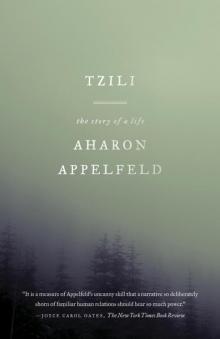 Tzili
Tzili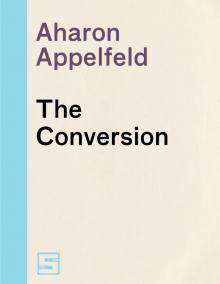 The Conversion
The Conversion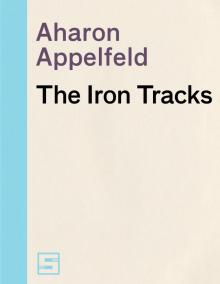 The Iron Tracks
The Iron Tracks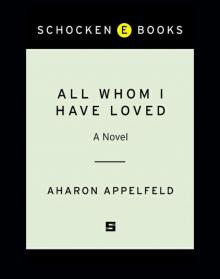 All Whom I Have Loved
All Whom I Have Loved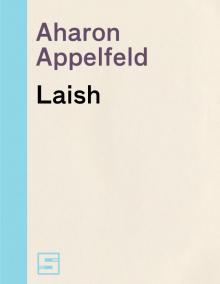 Laish
Laish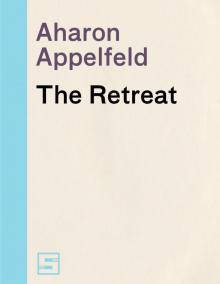 The Retreat
The Retreat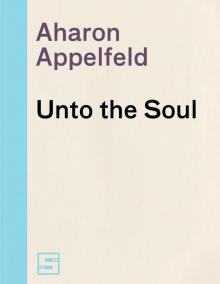 Unto the Soul
Unto the Soul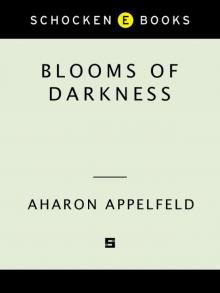 Blooms of Darkness
Blooms of Darkness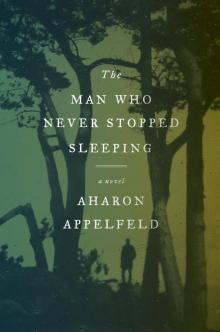 The Man Who Never Stopped Sleeping
The Man Who Never Stopped Sleeping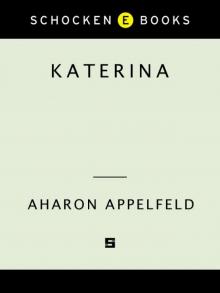 Katerina
Katerina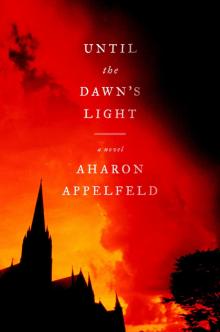 Until the Dawn's Light
Until the Dawn's Light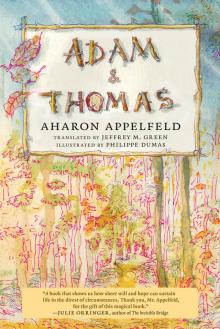 Adam and Thomas
Adam and Thomas Suddenly, Love
Suddenly, Love